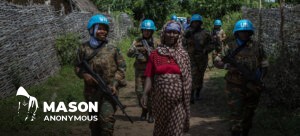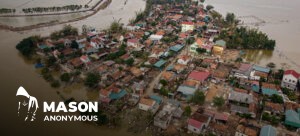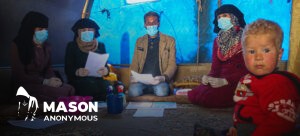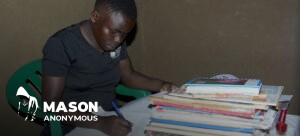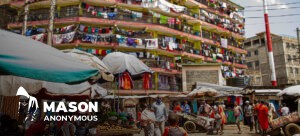“In war zones and everywhere in the world”, individuals are “calling for inclusion and representation, which is one of the main reasons why so many ordinary people are taking to the streets, organizing protest and raising their voices”, UN Women Executive Director Phumzile Mlambo-Ngcuka emphasized to the 15-member body.
Global ceasefire
Meanwhile, Secretary General António Guterres reiterated his call for a global ceasefire, underscoring that the COVID-19 pandemic is “the greatest test” the international community has faced since the Second World War.
“I appealed for an immediate global ceasefire so that we could focus on our common enemy: the COVID-19 virus”, he said.
Pointing to the 20-year-old landmark resolution 1325, he noted that in supporting the global ceasefire, the Council made a “strong and valuable link” to the Women, Peace and Security agenda.
COVID-19 and resolution 1325
Citing the resolution, Mr. Guterres observed that COVID-19 is having a disproportionate negative impact on women and girls, leaving them victims of rising gender-based violence while simultaneously diverting resources from their health care, including sexual and reproductive services, as well as threatening long-term impacts on women’s employment and girls’ educations.
“This will contribute to the continued marginalization of women from political decision-making and peace processes, which damages everyone”, he upheld.
Leading the charge
Moreover, women are on the front-line responses of the pandemic, keeping communities, economies and societies running through their crucial work as care givers, nurses, teachers and farmers, among other vital services. And they are peacebuilders at the local level and in communities around the world.
Recognize women who step up every day — UN chief
“We must also recognize women who step up every day in conflict zones to help those at risk, mediating between groups to enable access by civilians and humanitarian aid, building trust and strengthening social bonds”, Mr. Guterres continued.
Noting that the resolution calls for women to be in positions of leadership and decision-making, the top UN official remarked their “remarkable” successes in containing the pandemic while also supporting livelihoods.
“This confirms an obvious truth: Institutions, organizations, companies, and yes, Governments work better when they include half of society, rather than ignoring it”, he stressed, saying that women are “essential to peace and progress for all”.
In addition to turning the climate crisis around, reducing social divisions and making sustained peace, “women’s leadership in all spheres will be critical to finding the fastest, safest route through this pandemic, and to building a more peaceful and stable future”, added the Secretary-General.
Continuing the uphill battle
Over the past two decades that the resolution was adopted, women have made important strides towards inclusion, but gender equality remains aloof.
The UN chief painted a picture of power structures dominated by men, including that women lead only seven per cent of the world’s countries; mostly men make decisions about international peace and security; and while women are represented in UN mediation teams, “they remain largely excluded from delegations to peace talks and negotiations”.
Women’s meaningful participation in mediation “broadens the prospects for peace, stability, social cohesion and economic advancement”, stated the Secretary-General, advocating for innovative, “rapid and decisive’ solutions to include them in peace processes.
“Women must be included as a priority from the outset”, he said urging all States to use their “political influence, funding and support to incentivize and create conditions for women’s equal representation and participation in peace talks”.
UN on record
The UN chief outlined his work in ending discrimination against women within the Organization and affirmed the importance of women’s “full participation for uniformed personnel”.
He commended the Council for passing the first resolution this year focused on women in peacekeeping, noting that although the numbers are still too low, they continue to increase significantly, which is an important trend as women bring their own perspectives and expertise to every issue, including peace and security.
Gender links
The women, peace and security agenda challenges the relentless focus on interstate conflict at the expense of measures to protect women with 20 years of research and practice demonstrating the close links between gender equality, conflict prevention, and peace.
“For Governments and international institutions everywhere, gender equality is one of the surest ways of building social cohesion and trust, and inspiring people to be responsible, participating citizens”, he flagged.
“We cannot wait another twenty years to implement the women, peace and security agenda”, concluded the Secretary-General. “Let’s start that work together, today”.
Women step up, speak out
Adding her voice, UN Women Goodwill Ambassador Danai Gurira, who is also an actor and award-winning playwright, said that when women make their mark “in spite of impossible odds” it was not because they were given “the space and the opportunity, but because they protested against their exclusion and persisted”.
In her briefing, Zarqa Yaftali, Afghan Activist and Executive Director of Women and Children Legal Research Foundation said that “peace cannot come at the cost of women’s rights”.
“All we have achieved hangs in the balance in the current notiations between the Talban and the Afghan Government”, she asserted.

